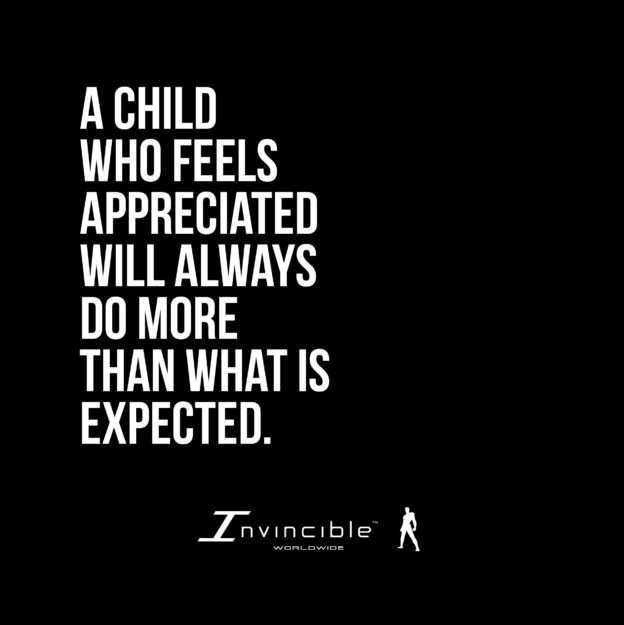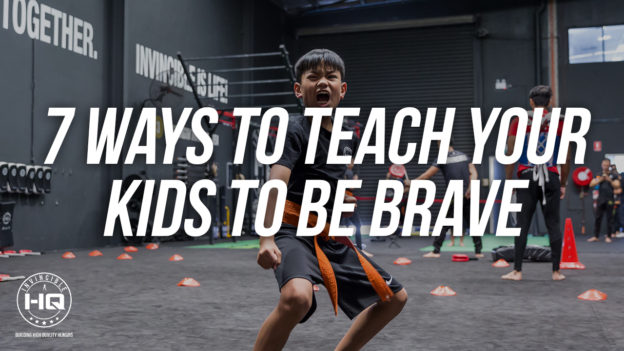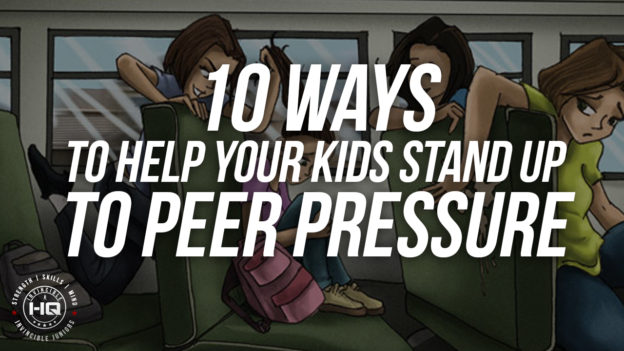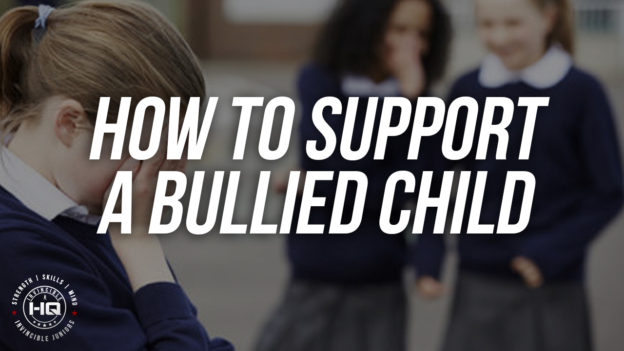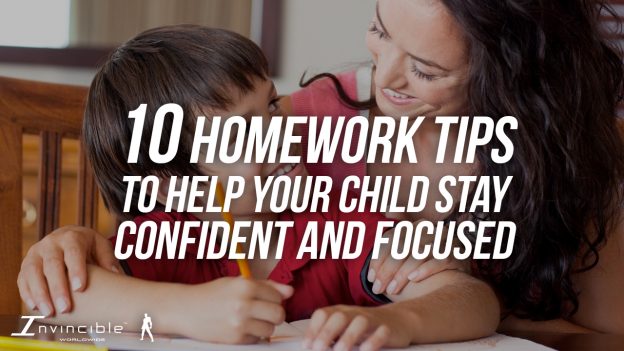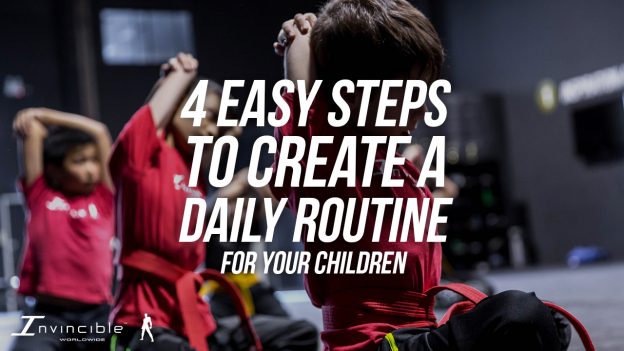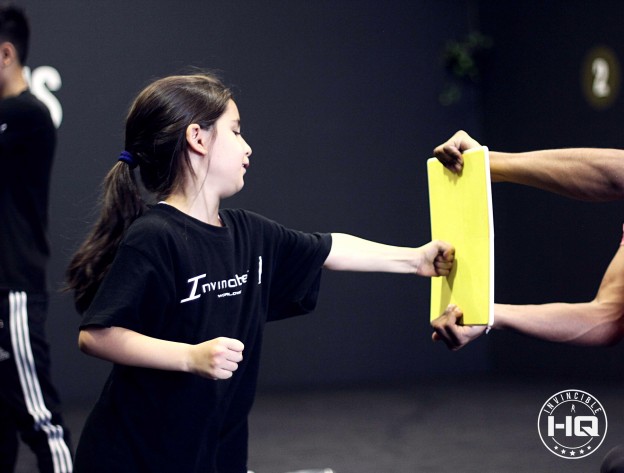Having Excellence means producing quality work, having high standards for yourself, and having pride in what you do.
Here are 10 Tips for Teaching Excellence to Your Kids  🙂
🙂
According to Vicki Caruana’s book, Giving Your Child the Excellence Edge, parents play an integral part in determining if their children will succeed—not only in school, but in their future careers and relationships.
1. Teach Your Children to Become Quality Producers.
Quality involves taking a competency or skill and improving on it. Teach your kids the importance of doing above what is expected.
For example, at Invincible HQ, we have the 110 philosophy (which is actually embedded into the HQ logo – have a look next time!).
The 110 philosophy is about always going above and beyond what is expected. We want our kids to apply the 110% mindset and give it their all in their training, at school and in life.
When they rise to the occasion and give that extra effort, reward them.
2. Teach Your Children to Become Independent Learners.
Teach your children how to be self-directed and to think for themselves. Encourage them to set goals and monitor their own progress.
Although difficult, allow your children to fail. Let them face the consequences of half-hearted effort or procrastination.
The younger they learn this lesson, the better. The consequences get more intense as they get older.
3. Teach Your Children to Become Creative Thinkers.
According to Caruana, “Creativity is the power of the imagination.” Creative thinkers are able to define and solve a problem by evaluating choices and considering possible outcomes.
Teach your children how to creatively solve problems by having them
1. define the problem
2. evaluate the possible solutions
3. develop a plan of action
4. adjust the plan when necessary
4. Teach Your Children to Become Critical Thinkers.
Discernment and reasoning play a large part in critical thinking. Encourage your children to apply the scientific method to daily problems.
For example, in determining the best way to walk to school, your kids would first state the question, form a hypothesis (i.e. Elm Street to Maple Street is best), test it through experimentation (timing how long that route takes), and then draw conclusions.
5. Teach Your Children to Become Information Managers.
Children need to know how to find, evaluate, store, and use information. There is as much bad information out there as there is good. Our kids need the necessary skills to sift through and retain the correct information.
6. Teach Your Children to Become Cooperative Learners.
Cooperative learners participate in group learning experiences and are helpful to fellow students.
They can negotiate with a balance of assertiveness, consideration, and flexibility. And they show patience with those who do not learn as quickly as they do. Essentially, these students get along well with their fellow classmates.
In your home, be sure to instill this important lesson by teaching and modeling respect for others.
7. Teach Your Children to Become Effective Communicators.
Make sure your children understand the concept of tone and that the way something is said can be just as important as what is said.
A good communicator also focuses on respectful listening. Caruana suggests teaching your kids how to sit still and listen by having them listen to books on tape. Start at 5 minutes a day and gradually work up to 30 minutes per sitting.
8. Teach Your Children to Become Confident Leaders.
Confident leaders know how to listen to the opinions of others, are comfortable in their leadership style, and have a defined vision. Be sure to model good leadership in your home and to always treat others with respect.
9. Teach Your Children to Become Efficient Time Managers.
Help your children create a timeline with goals for completing tasks on time instead of waiting until the last minute. Teach your children the value of being prompt and set consequences if they run late for school. Use your children’s chores to teach them about deadlines.
Make sure your children are also effectively using their free time by engaging in a variety of activities (i.e. reading, practising their kicks) instead of just sitting in front of the television or computer.
10. Teach Your Children to Become Self-Assessors.
Self-assessment skills will help your children know and improve on their weaknesses and build their strengths. They may find journaling helpful in identifying areas in which they struggle.
Have occasional parent/child conferences during the school year to check on their progress and to help your children identify areas needing improvement.
Let us know which one of these you will implement today!  🙂
🙂
About Invincible Worldwide

